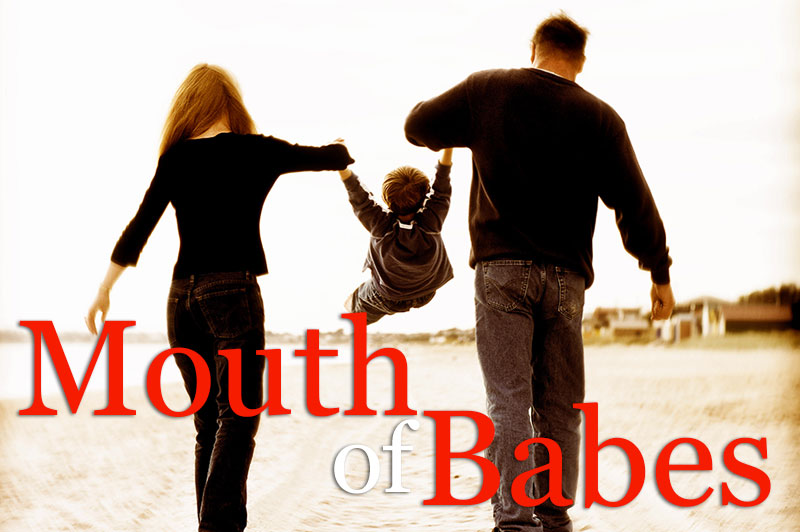Out Of The Mouth Of Babes
Unlock the Secrets of Children: Learning to 'Be Real' from Nature's Wild Child
Children are extraordinary people - neither the dewy-eyed little darlings we put on our Christmas cards nor the wild savages we fear will grow up to be criminals if not disciplined properly. And Nature's child is indeed wild - wild because he doesn't fit into our idea of what is and isn't done, wild because he hasn't learned the subtle art of concealment and hypocrisy we cultivate as adults, wild because no matter how much we try to make him conform to our will, if he is lucky he never will, so strongly directed from within is he by his own destiny.
As adults, most of us can't help trying. When we try too hard, we succeed only in turning our children into the same hypocrites we ourselves have learned to be. It was a little girl named Jill - a freckle-faced, runny-nosed, redheaded three year old - and two of her nursery-school friends who first made me aware of my own hypocrisy.
Jill and a friend were setting up an imaginary tea party. They had carefully laid the small table with battered plastic cups, filled the cracked teapot and put wadded-up pieces of paper in a paper cup for sugar cubes. During all of this the two girls chattered in obvious imitation of their mothers. `Who else is coming to tea?' asked Jill. `Oh, you know that awful old Mrs Simpson - the one who always has her hair in curlers,' replied her friend. `Do you know she doesn't even bother to put a coat over her nightgown when she goes out for the milk?'
So the conversation went as the two girls, unaware that anyone was listening, prepared for their guest. When the table was all set, Jill leaned out the window and told a third little girl she could come to the party now. She entered the play house and was greeted with exclamations of: `Why, dear Mrs Simpson, how very nice of you to come. It is so lovely to see you.'
I thought to myself how often a scene similar to the one I was witnessing takes place. I was trying to remember the last time I'd been guilty of this kind of two-faced behavior, when my thoughts were interrupted by `Mrs Simpson,' who had been seated at the table. Suddenly she rose, dumped her `tea' back into the cracked teapot, and said very slowly and deliberately: `I heard what you said about me from under the window, and I don't like it. I'm not going to be your old Mrs Simpson any more no matter how nice you are to me, so there!' Young children hate being patronized. They react strongly when someone is false with them.
The less privileged the family background of the child, the easier it seems to be for him to see through superficial geniality - and the more demanding he becomes of true, undivided attention and real relationships with adults.
